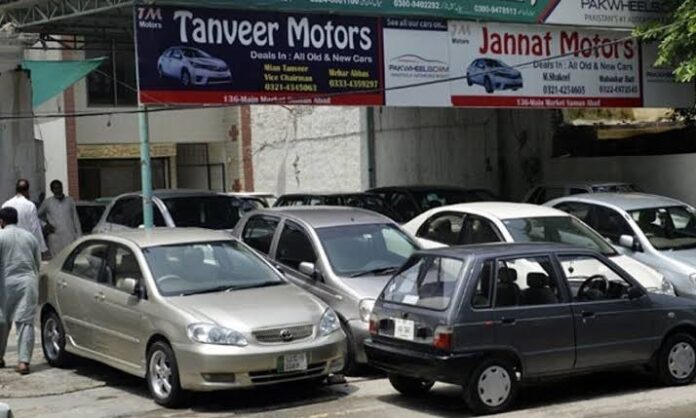In Pakistan, auto finance by banks reached an all-time high of Rs297.5 billion, as consumers’ thirst for owning a vehicle switched into high gear, owing to the availability of credit at a comparatively low interest rate despite the financial concerns associated with the Covid-19 outbreak.
The thrill of owning a car reached new heights with the launch of new models and brands by new entrants, particularly in the categories of automobiles with engines of 1,000cc or more and jeep (Sports Utility Vehicles/SUVs).
Bank car financing increased by Rs86.5 billion, or 41%, in the first 11 months of fiscal year 2021 (July-May), to Rs279.5 billion in May 2021, compared to Rs211.11 billion at the end of June 2020, according to Pakistan’s central bank.
Such a surge in demand for auto finance was previously seen during President Pervez Musharraf’s administration, when banks, flush with cash, granted large sums for cars without examining borrowers’ ability to repay the loans. The car financing bubble eventually burst when a substantial number of consumers defaulted on their car loans. This caused a lot of uproar in the financial business, as well as in numerous cities.
Since March-June 2020, when the benchmark interest rate was dropped by 625 basis points to 7%, there has been such a surge in demand for auto finance. The benefit of the rate drop has been passed on to vehicle consumers through banks.
Second, the Covid-19 epidemic had put off plans to purchase a new car, which had a negative impact on the auto sector. In the aftermath of the Covid-19 outbreak, the manufacturers did not create or sell a single car for a few months. They overcame a horrible scenario that has now resulted in a great demand for automobiles.
The post-pandemic broader rebound in the economy in general, and the auto industry in particular, resulted in two types of automobile demand: pent-up demand and demand as usual. “The crisis shifted car financing into overdrive,” he explained.


